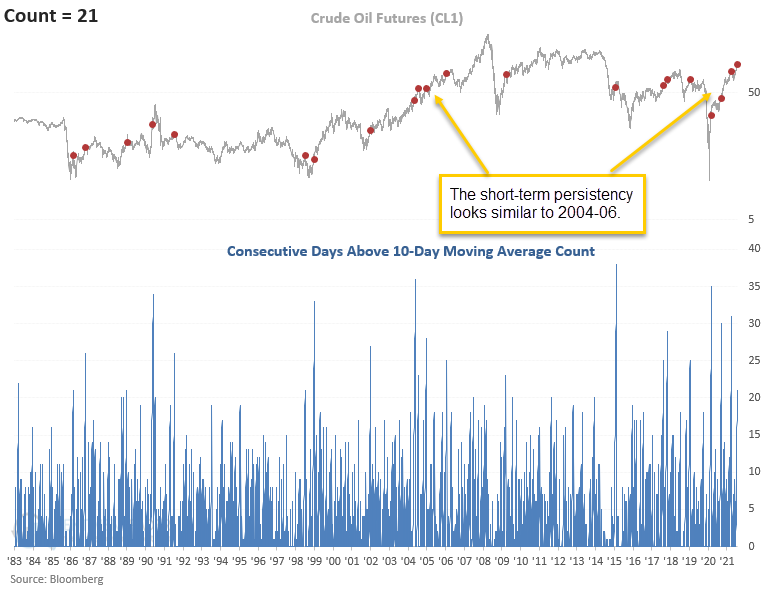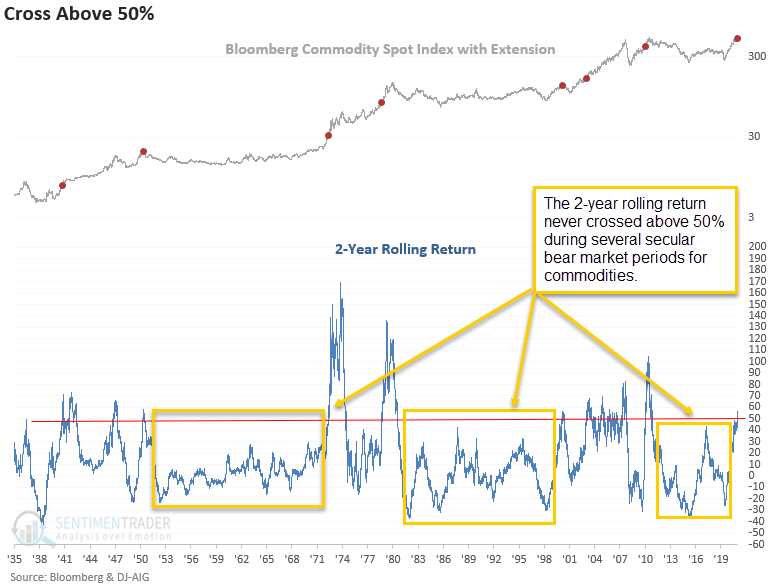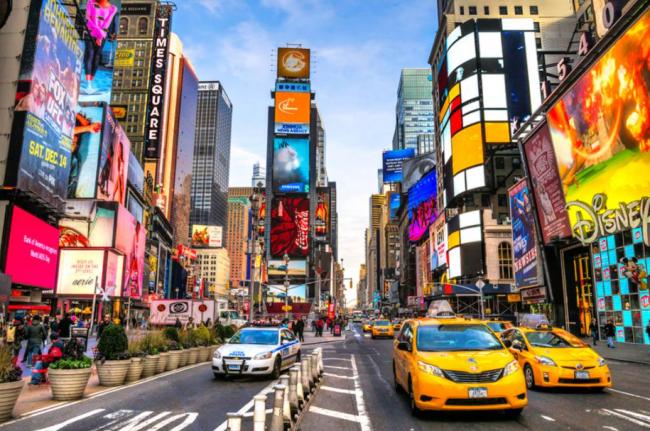The Biggest Illegal Border Surge Ever
Is Expected This Month
By Buck Sexton
"Our borders are not open," said Department of Homeland Security ("DHS") Chief Alejandro Mayorkas late last month.
The DHS secretary's words rang out at a press conference addressing Texas' Del Rio International Bridge migrant crisis. Unfortunately, his statement doesn't align with reality at the border.
Illegal migrants clearly don't believe him, as is evident to anyone paying attention to the ongoing surge of illegal crossings...
And it looks like a tidal wave of migrants is about to hit soon.
We could all have predicted this... With vast swaths of Haitian migrants let into the U.S. when the last caravan reached the border in September, more are now on their way.
Reports suggest that a migrant caravan of 15,000 will arrive at the U.S.-Mexico border in early October. Additionally, the Panamanian government says that a surge of 60,000 migrants – mostly of Haitian origin – is on its way north. This torrent is simply unsustainable for an already grossly overstretched border patrol.
While the incoming numbers of illegals may be staggering, they are also consistent with the trajectory under the Biden administration.
A Muted Crisis
2021 has already been a record year for lawlessness at the southern border. This past July had the highest level of illegal border crossings recorded in a single month in over 20 years at 210,000. In August, the number was just below that all-time record, with 208,000 apprehensions at the border.
Despite all this, the Biden administration tries to downplay the severity of the situation as merely a "challenge" instead of using the proper term: crisis.
The talking points for senior administration officials on the issue are well-rehearsed at this point. First and foremost, they try to convince the American people that what they are seeing and hearing about at the border is not, in fact, a big deal. This is ludicrous...
A perfect example can be found in the reliable, smarmy chief of the Department of Homeland Security, DHS Secretary Mayorkas. In the midst of the recent surge of Haitian migrants in Del Rio, here is what he said to the American people on September 20:
We have reiterated that our borders are not open, and people should not make the dangerous journey. Individuals and families are subject to border restrictions, including expulsion. Irregular migration poses a significant threat to the health and welfare of border communities, and to the lives of the migrants themselves, and should not be attempted. If you come to the United States illegally, you will be returned. Your journey will not succeed, and you will be endangering your life and your family's lives. This Administration is committed to developing safe, orderly, and humane pathways for migration, but this is not the way to do it.
Mayorkas then appeared on Fox News Sunday with interviewer Chris Wallace, during which there was this illuminating exchange about the reality of the U.S.-Mexico border under the Biden administration's policies:
Wallace: I want to start with those 30,000 Haitian migrants who came across the border into Del Rio, Texas, since September 9th, as you say. You say that 12,400 will have their cases heard by an immigration judge and another 5,000 are being processed by your department. Mr. Secretary, of those 17,400, how many have been released into the U.S. and how many more potentially could be released into the U.S.?
Mayorkas: Approximately, I think it's about 10,000 or so, 12,000.
Wallace: Have been released?
Mayorkas: Yes.
Wallace: And of the 5,000 that are still in process?
Mayorkas: We will make determinations whether they will be returned to Haiti based on our public health and public interest authorities.
Wallace: So, are we talking about a total of 12,000 or could it be even higher?
Mayorkas: It could – it could be even higher.
So more than half of those migrants of Haitian origin who entered illegally onto U.S. soil were in fact allowed to stay in America. That's exactly the kind of calculus that is driving further illegal crossings, and why the number of apprehensions at the border is going to stay at all-time highs through the end of the year.
The total number for 2021 could be close to 2 million illegal immigrants – which would be the highest in two decades and probably ever.
Asylum Loopholes
How have the Biden administration and the Open Borders advocates reacted to this? By making it even more difficult for the Border Patrol to do its job and secure the sovereignty of the southern border.
A federal court even ordered the end of Title 42 policy, which allowed Border Patrol to turn away asylum seekers as a health safety measure during the pandemic.
While this is unhelpful for border security, its actual impact will be somewhat minimal. The Biden White House wasn't using Title 42 authority to turn away unaccompanied minors and family units with young children this past year, which meant that only single adult males were being readily turned away under the pandemic authorities of the CDC. But the fact that they weren't using it is telling in and of itself.
Additionally, Biden's DHS has already made the decision to end the Migrant Protection Protocols ("MPP"), also known as the "Remain in Mexico" program. This Trump-era policy fix changed the incentives for migrants who would otherwise benefit from scamming the immigration (more specifically, asylum) system to gain easy access into the U.S.
Before Trump's team instituted MPP, any migrant could illegally cross into the U.S. and claim "defensive" or "secondary" asylum. And assuming they passed what's called the "credible fear test," they would be let into the U.S. pending a court hearing that would be months or even years away. The chances of being deported for those playing the system in this way were minuscule and so a surge of migrants occurred from 2018 to 2019.
MPP made it so those same would-be "asylum" seekers would have to wait their turn in Mexico instead of on U.S. soil. And once they were brought into an American immigration court to have their asylum claim adjudicated, they could be easily deported right away. The magnet for illegal immigration was thus turned off.
But the Biden White House came in and ended this program. The only plausible rationale for this decision was that it would once again encourage large numbers of migrants to enter the U.S. illegally and attempt to stay through asylum loopholes.
While President Biden and cabinet officials like DHS Secretary Mayorkas can give speeches in which they assure the American people that the border is "not open," it's clear that hundreds of thousands of foreign migrants from around the world disagree.
Unfortunately, reality isn't much of an impediment to the Democrats' immigration rhetoric. They have a radical, socialist, and increasingly open-borders-demanding base that wants as much illegal immigration as possible.
Mainstream Media Whiplash
During the recent surge in Del Rio, Texas, the entire news media shifted its attention from the wide-open nature of the southern border to a series of lies about members of the Border Patrol on horseback using "whips" on Haitian migrants.
The fact that there was any "whipping" was a complete fabrication – as even the photographer behind the infamous photos publicly admitted – was irrelevant to the corporate news media and the open-borders Left. They saw an opportunity to shift the narrative to depicting law enforcement as racist and the migrants as helpless victims, and they took it.
Even President Biden went along with the Border Patrol "whipping" migrants lie. In a speech after the (fake) controversy broke, the leader of the free world said:
It was horrible what you see, what you saw – to see people treated like they did, with horses nearly running them over and people being strapped. It's outrageous. I promise you, those people will pay.
There's an investigation underway now and there will be consequences. There will be consequences. It's an embarrassment. It's beyond an embarrassment.
Biden still hasn't corrected this shameless maligning of mounted Border Patrol members, who were doing their duty admirably despite constant undermining from the Democrat base.
Biden saw an opportunity to score cheap political points with a key constituency of the Left, and he took it because pandering and shameless opportunism are probably Biden's only skills.
Will there be any consequences for the Biden betrayal of border security? The only means for such a comeuppance are found at the ballot box in the 2022 midterms. The Democrat party feels comfortable demanding amnesty on the one hand while pretending to care about sovereignty and security at our southern border.
This appalling dereliction of duty can best be punished through a crushing electoral wipeout for the Democrat Left next year. In the meantime, the border will continue to be wide open to anyone willing to do even the slightest due diligence on how to game our system... and they will gain easy access into the U.S.
And all the while, Democrats will continue to bleat about this as a "nation of immigrants" while making a mockery of our immigration system and preparing to take even greater control.
Once they've achieved the mass legalization of amnesty, it won't matter how much they lied or how many laws they refused to enforce. America will effectively be a one-party state.
The Biden response to the border is shameful (but effective) brute-force politics. While we are arguing about spending bills and basic voter-integrity protections, Democrats are hard at work changing the actual voters and putting themselves in a position to vanquish their political foes once and for all.









